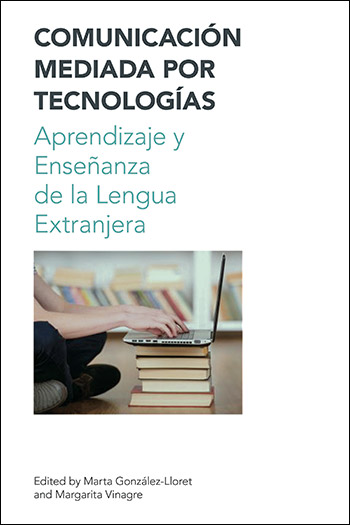
Comunicación Mediada por Tecnologías - Aprendizaje y Enseñanza de la Lengua Extranjera - Marta González-Lloret
Telecolaboración y creación de relatos digitales: Una propuesta metodológica [Telecollaboration and digital Story Creation: A Methodological Proposal]
Comunicación Mediada por Tecnologías - Aprendizaje y Enseñanza de la Lengua Extranjera - Marta González-Lloret
Ana Sevilla Pavón [+]
Universitat de Valencia/IULMA
View Website
Ana Maria Gimeno Sanz [+]
Universitat Politècnica de València
View Website
Description
This chapter describes a methodological proposal combining two teaching approaches, i.e. telecollaboration and digital storytelling. The proposal contributes toward enhancing both team work and language learning by means of conducting a number of activities leading to the creation of a digital story by applying online telecollaboration methods. The tasks focus on designing an innovative product to be exhibited in a business fair, as well as having to make decisions in order to attract funding to enable the development of the product and commercialise it in their counterparts’ trade market. The underlying approach implies putting into practice active learning and teaching methodologies, and language learning techniques that help the learner become involved in the process leading to acquisition of the target language and its culture, whilst simultaneously promoting the use of technology to support learning-by-doing in authentic situations by collaborating with fellow students who belong to the culture of the target language. In addition, creating digital stories allows students to author the actual resources that are to be used for learning purposes and it facilitates cultural awareness in a more contextualised and in-depth fashion by encouraging fellow counterpart students to be the prime sources of information and, thus, ambassadors of their country, language and culture.





